Starting Your Fitness Journey? Here’s What You Need to Know About Protein
Getting started with fitness can feel exciting and confusing at the same time. You learn to hit the gym, lift weights, and practice patience—but the results don’t always show up as fast as you’d like. Often, the missing piece isn’t your workouts, but your nutrition. And when it comes to nutrition, protein is the real MVP.
Protein isn’t just a buzzword—it’s the building block your body uses to repair and grow muscle after exercise. Think of it like bricks in a wall: without enough bricks, you can’t build a strong wall. The same goes for your muscles.
This guide is made for beginners—those of you just stepping into the fitness world and wondering which protein-packed foods actually help build muscle. Whether you eat meat, prefer plants, or something in between, you’ll find easy food choices, tips, and simple recipes backed by good nutrition science.
How Much Protein Do You Really Need?
One of the first questions most beginners ask is: How much protein should I eat? The answer depends on your body weight, how hard you’re training, and what your goals are.
Here’s a general rule:
Aim for about 1.6 to 2.2 grams of protein per kilogram of your body weight each day.
So, if you weigh 70 kg (about 154 pounds), that means around 112 to 154 grams of protein daily. If you’re doing intense strength training, you might want to aim for the higher end of that range.
But remember, eating more protein than your body can use won’t build more muscle—it could just be stored as fat or wasted.
Daily Protein Needs for Muscle Gain (Based on Weight)
| Body Weight (kg) | Protein (g/day) – Light Training | Protein (g/day) – Intense Training |
|---|---|---|
| 60 kg | 96 – 120 g | 108 – 132 g |
| 70 kg | 112 – 140 g | 126 – 154 g |
| 80 kg | 128 – 160 g | 144 – 176 g |
| 90 kg | 144 – 180 g | 162 – 198 g |
Complete vs Incomplete Proteins: What It Means for You
If you are new to all this, some names such as complete protein may sound technical—and this is what it is in simple language.
The complete proteins contain all the 9 essential amino acids that your body cannot make. These play an important role in the repair and growth of the muscles. Meats and products such as chicken, eggs, and dairy are complete proteins in nature.
Plant-based foods are often incomplete proteins, which contain less than all of the essential amino acids. And this does not imply that they are bad: you simply have to mix them. As an example, a combination of rice and beans combined constitutes complete protein.
This is important if you are a vegetarian or a vegan. Mix and match foods have the potential to provide your body with the same muscle-synthesizing capability as animal products.
Top Animal-Based Protein Foods for Beginners
Let’s get into the meat of it—So, what is it? What say we get down to the nitty-gritty, er, meat of it. The following are some of the best beginner-friendly ways to gain muscle, in case you consume animal products.. If you eat animal products, here are some of the best, beginner-friendly options for muscle gain.
-
Chicken Breast: A classic—lean, high in protein (about 31g per 100g), and easy to cook. Try grilling it with olive oil and lemon.
-
Eggs: Don’t skip the yolk! One big egg has about 6g of complete protein. Scramble a couple with spinach for a great muscle-boosting breakfast.
-
Greek Yogurt: Creamier and richer in protein (10g per 100g) than regular yogurt. Opt for unsweetened and add your favorite fruit or a drizzle of honey.
-
Tuna & Salmon: Both are packed with protein and omega-3 fats, great for muscle recovery. Tuna has around 29g per 100g, salmon about 25g. Tuna sandwiches on whole grain bread make a quick lunch.
-
Lean Beef: Ground beef or sirloin offers serious protein and iron (about 26g per 100g). Just watch out for processed or fatty cuts.
-
Cottage Cheese: This slow-digesting protein works even while you sleep. One cup packs about 25g of protein. Add pineapple or berries for a sweet treat.
-
Milk: Not flashy, but effective. One serving of whole milk has 8g of protein plus calcium and vitamin D. Use it in smoothies for an easy protein boost.
The best part? These foods are easy to find, budget-friendly, and don’t require fancy cooking skills. As a beginner, keeping things simple helps you stick with it. Try adding one protein source to each meal and watch it become second nature.
High-Protein Plant-Based Foods for Muscle Gain

And, in case you are vegetarian or you simply want to eat less meat, it is important to note that plants can also develop muscle mass. All you have to do is understand which ones are more effective and how to combine them to add punch to them.
-
Lentils: About 18g of protein per cooked cup, plus fiber and minerals. Great in curries or salads.
-
Tofu & Tempeh: Both are made from soy and are complete proteins. Tofu has about 10g per 100g, tempeh even more. Marinate tofu before cooking for better flavor.
-
Quinoa: A rare grain that’s a complete protein, with about 8g per cooked cup. Swap it in for rice to add protein to your meals.
-
Chickpeas: Versatile and nutritious, 15g protein per cup cooked. Roast with olive oil and spices for a crunchy snack.
-
Edamame: Young soybeans with 17g protein per cup, perfect as a snack or side dish.
Smart Tips for Eating More Protein
You do not require modifying your entire life within one night to consume more protein. Some of the low-skill tactics are as follows:
- Add protein to the food you already enjoy. Add chia seeds to smoothies or add chickpeas to pasta or add nut butter to toast.
- Snack smart. Substitute chips and cookies with Greek yogurt, boiled eggs or a few nuts.
- Don’t miss breakfast. The first meal can determine your whole day, especially, having a high-protein breakfast.
- Plan ahead. Batch cook chicken, tofu or beans and store them in the fridge throughout the week so that it can be used conveniently.
High-Protein Snacks for Busy Beginners
Life happens, no matter how well we plan to stick to it. Perhaps you are late to work or making errands or just do not feel like cooking. That is when high-protein snacks may come to be of use. Not only do they make life convenient, but they also avert the case of not attaining your daily protein goal.
These are some of the brain-healthy, muscle-friendly snacks:
-
Hard-boiled eggs (about 6g protein each)
-
Roasted chickpeas (7–8g protein per half-cup)
-
Greek yogurt with fruit or nuts
-
Low-sugar protein bars (aim for 15–20g protein)
-
Peanut butter on whole grain bread (about 8g protein)
-
Tuna pouches (20g protein, no cooking needed)
-
Edamame pods (17g protein per cup)
Protein Timing: When Should You Eat Protein?
- Before workout: A little protein-carb mix (such as banana plus boiled egg) provides energy and conditions muscles.
- After workout (within 30-60 minutes): Your body is similar to a sponge. To have muscles fix more quickly, a protein shake, chicken sandwich, or tofu wrap will do.
- Before bed: Foods that contain casein before bed such as cottage cheese or Greek yogurt enhance recovery at night.
Ideal Protein Timing for Muscle Gain Beginners
| Time | Meal/Snack Suggestion | Protein Purpose |
|---|---|---|
| Morning | Eggs + toast / Greek yogurt + oats | Jump-starts metabolism & recovery |
| Mid-morning snack | Protein bar or boiled eggs | Keeps protein synthesis steady |
| Lunch | Chicken, tofu, or lentils + rice | Main fuel for midday repair |
| Pre-workout (1hr) | Banana + peanut butter / milk | Energy & muscle prep |
| Post-workout | Protein shake / Tuna sandwich | Repairs and grows muscle |
| Dinner | Salmon or paneer + veggies | Rebuilds overnight reserves |
| Pre-bed (optional) | Cottage cheese / casein shake | Prevents muscle breakdown overnight |
Simple Meal Plan for Muscle Gain (1-Day Sample)
Below is a beginner-friendly meal plan, with both vegetarian and non-vegetarian versions. It hits around 120–130g of protein, suitable for someone weighing around 70 kg.
Muscle Gain Meal Plan – Vegetarian Option
| Meal | Foods Included | Protein (Approx.) |
|---|---|---|
| Breakfast | 2 boiled eggs, oats with soy milk, banana | 25g |
| Snack | Roasted chickpeas + Greek yogurt | 20g |
| Lunch | Lentil curry, brown rice, mixed veggies | 30g |
| Snack | Protein smoothie (pea protein, fruit) | 20g |
| Dinner | Tofu stir-fry with quinoa | 25g |
| Total | 120g |
Muscle Gain Meal Plan – Non-Vegetarian Option
| Meal | Foods Included | Protein (Approx.) |
|---|---|---|
| Breakfast | 3 scrambled eggs, whole grain toast, fruit | 25g |
| Snack | Milk + peanut butter toast | 15g |
| Lunch | Grilled chicken, sweet potato, spinach salad | 35g |
| Snack | Protein shake + almonds | 20g |
| Dinner | Salmon with rice and broccoli | 30g |
| Total | 125g |
Common Mistakes Beginners Make with Protein
To make sure that you are on the right track as you delve into restructuring your diet, here are some common pitfalls that most people making the transition into a new dietary lifestyle exhibit, as well as what you must learn to keep these at bay:
1. Relying Too Much on Protein Shakes
Some supplements can do the trick, but not at the cost of meals. The other advantages of whole foods include the provision of other nutrients such as fibre and vitamins and minerals, not provided by the use of powders.
2. Ignoring Carbs and Fats
Protein is the most important but carbs provide you energy in order to lift, and healthy fats help in the operation of hormones. Eliminating such can be detrimental.
3. Skipping Meals
Building muscle does not only depend on intake but also frequency. Missing meals may lead to deficiency of protein and body wasting.
4. Not Tracking Intake
You believe that you can consume enough nutrients—but as long as you are not monitoring, you do not know how much you are consuming. You can use apps, such as MyFitnessPal, and count your protein amounts.
What About Supplements?
You do not necessarily require supplements to consume sufficient quantities of whole foods when you are eating properly and reaching your protein demands. However, to most starters, life tends to be hectic and thus the protein shake provides a backup.
These Are the Common Supplements Broken Down:
1. Whey Protein
Rapidly-absorbing and are used after exercising. This is a milk product and thus cannot apply to a vegan.
2. Casein Protein
Slow-digestible, sleeps well. Maintains amino acids circulation throughout the night.
3. Plant-Based Protein
Composed of peas, soy, rice or hemp. One selection that is suitable to vegans, yet not all the blends have a full profile of amino acids.
What to Look for:
- More than 20g protein in each serving
- No artificial sugar
- Low carb and minor sugar
- Third party examined (NSF Tested, Informed Choice)
TIP: Supplements are nice to have, they are not a main base. First focus on food.
Grocery Tips: Eating High-Protein on a Budget
Smart Swaps:
- Fancy breakfast cereals → topped by eggs
- Tuna canned → rather than prepared deli meat
- Protein snacks → dried beans over pre-packed protein snacks
- Protein bars → peanut butter
- Chicken thighs (frozen) → over breast cuts
Bulk Buy Staples:
- Lentil, oats, chickpeas, quinoa
- Tubs of yogurt, milk powder
- Wholesale eggs (purchase them by the dozen)
- Tofu blocks or packs of tempeh
Possible tip: Work in Sunday to cook food at once and store some in the fridge. This eliminates the mid-week takeout and saves time and money.
Staying Consistent: The Secret Sauce of Muscle Building
A single good day is not going to make your body—steady 30 days will begin to. These are the ways to maintain it:
1. Track Your Food
Just estimating the amount of protein helps keep you in check even in an approximate way. You will discover the amount that you really consume instead of what you believe to do.
2. Meal Prep Once, Eat Multiple Times
Cook large amounts of proteins—boil an egg, grill chicken, roast chickpeas. Put them in jars or boxes and combine/pair them with carbs or vegetables.
3. Keep It Flexible
It is not going to be a perfect day all the time. On some days, you would be having a fast food or would miss on a meal, and that is alright. Practices are more important than perfection.
4. Join a Community
Associate with others who are in the same process. Friends you met at the gym, or a Facebook group or a fitness subreddit, it does not matter: support is good.
Your Muscle Journey Starts in the Kitchen
No fancy supplements or complicated diets needed—just good protein, spread through the day, paired with regular exercise. Muscle growth takes time, but every boiled egg, lentil bowl, and glass of milk adds up.
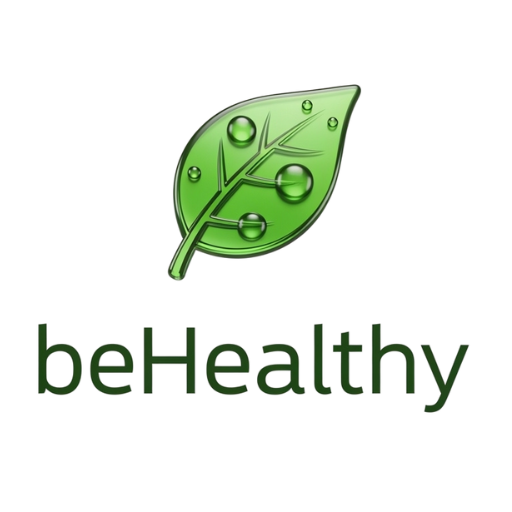

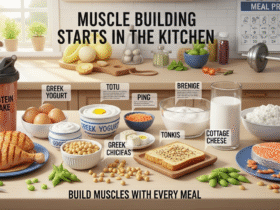
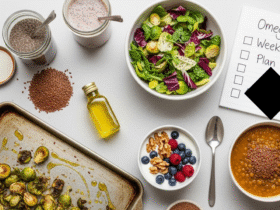

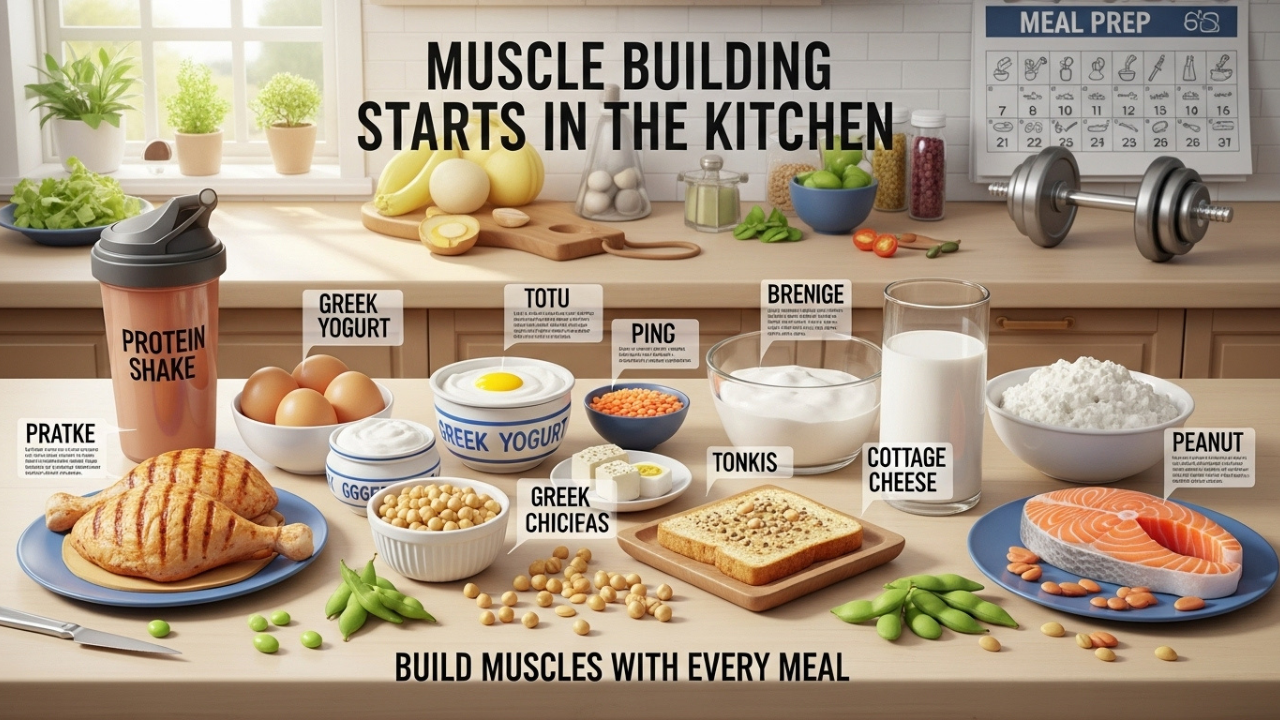






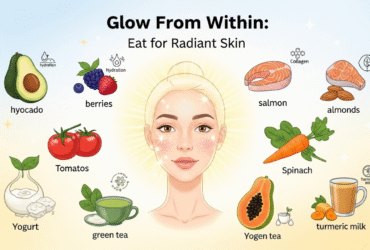

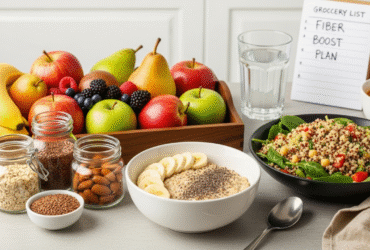
Leave a Reply